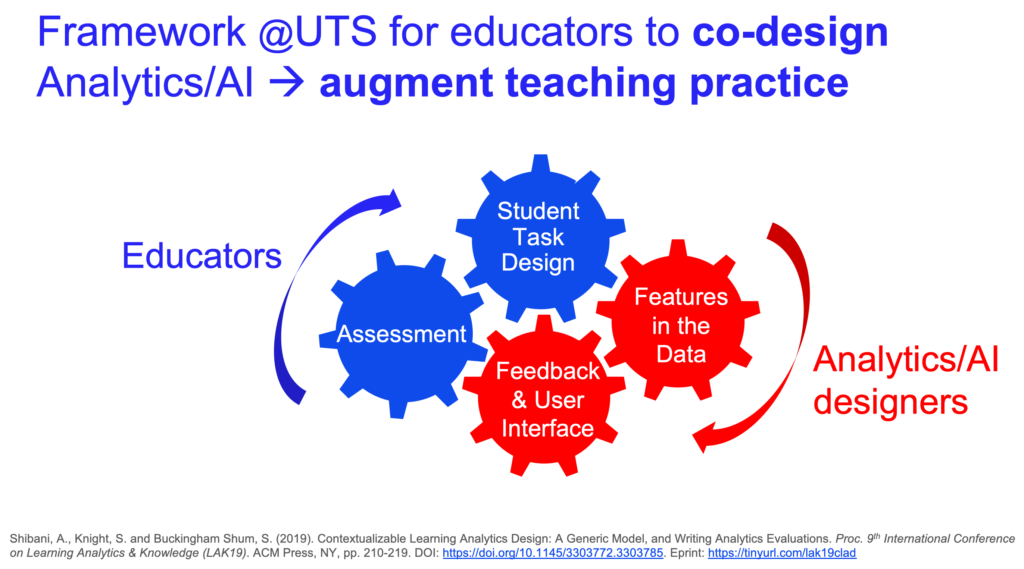Learning Analytics and AI for Future-Focused Learning
I’ve tended to be skeptical about Learning Analytics, seeing it of limited relevance to pedagogy and more concerned with managing learners (reducing dropouts) than having anything to say about learning. Even more, Learning Analytics research has tended to docus on higher education and formal learning, having little to say about workplace learning and vocational education and training. But things are changing, especially through the integration of AI with Learning Analytics Learning Analytics and AI for future focused learning. I’m especially interested in this since we have had a project approved under the Erasmus Plus programme on AI and vocational education and training teachers and trainers.
This presentation by Simon Buckingham Shum at the EduTECH conference in Australia in June of this year introduces some of the work at the UTS Connected Intelligence Centre, where, he says “the team has been refining (for the last 3 years) automated, personalised feedback to students on higher order transferable competencies (Graduate Attributes in university-speak, or General Capabilities in the schools sector) – namely, high performance face-to-face teamwork (exemplar: nursing simulation exercises), and critical, reflective thinking (as revealed in students’ writing).”
Simon says “Learning Analytics bring the power of data science and human-centred design to educational data, while AI makes new forms of timely assessment and feedback possible. Tech researchers, developers, educators and learners can co-design formative feedback on 21st century competencies such as critical reflective writing, teamwork, self-regulated learning, and dispositions for lifelong learning. Such tools are being coherently integrated into teaching practice and aligned with curriculum outcomes at UTS, and could be in schools.

Getting the technology’s capabilities and the user experience right is impossible without meaningful engagement with educators and students. So, this talk is organised around our emerging understanding of how to align the different elements of the whole sociotechnical infrastructure. To use the language of the framework – the ‘cogs’ can be tuned to different contexts, and must synchronise and drive in the same direction to create a coherent learning experience.”
A number of things strike me about the presentation (and the videos within the presentation).
The first is the integration of the LA Framework with more traditional educational frameworks including competences and assessment rubrics. These provide a much broader reference point for proxies for achievement and reflection than the relevant proxy used in LA (and indeed in many areas of education of achievement in examination and other assessments. The design process is intended to develop a data map to these proxies.
Secondly, rather than seeking to provide feedback to students on attainment (and likely attainment – or otherwise) or to serve as the basis for intervention by teachers, the focus is on reflection. The feedback is seen as “a provocation to deeper discussion” and as “scaffolding reflection
Finally – and as part of the refection process – the LA is designed to provide agency for the student, who, says Simon “can push back against the machine” if they think it is wrong.
All in all, there is much content for reflection here. The slides which contain a number of references can be downloaded here (PDF).
